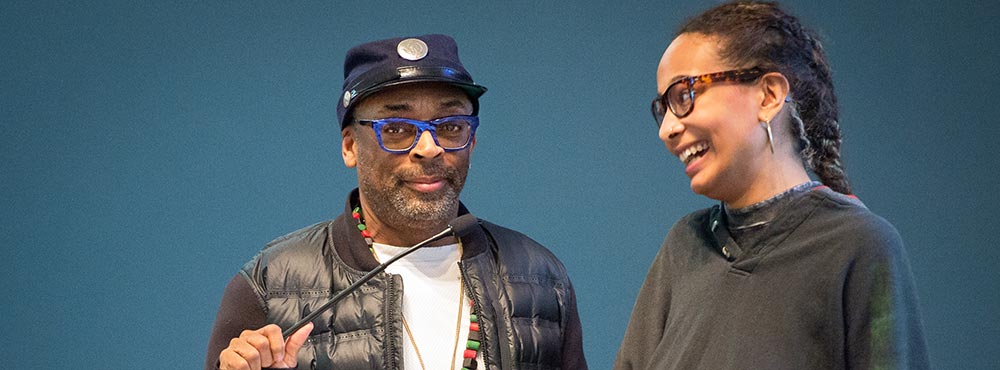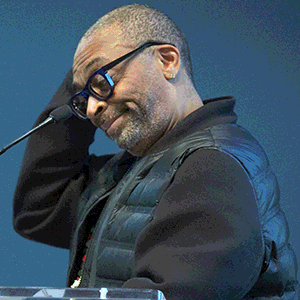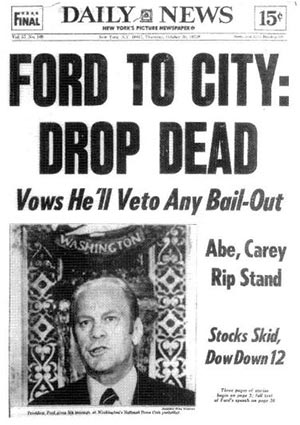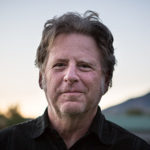
Documentary class in session at RJI with Professor Spike Lee

A highlight of my RJI stay happened last week, 30 feet from my office. Spike Lee gave a master class to documentary and photojournalism students. He was in Columbia, Missouri, to premiere “2 Fists Up: We Gon Be Alright,” a new ESPN documentary on racial unrest at the University of Missouri that uses footage from the Missouri student film “Field of Vision — Concerned Student 1950”.
The director is also an NYU professor. He proved a pro at motivating young movie makers. Here, in his own words, is Spike Lee’s tale of his start in film.
Act One: Spike sucks as a student
Growing up I had no idea I wanted to be a filmmaker. I liked films. But I had no idea people made films.
We went to the movie theatre every Saturday, a double bill. We would get there when it opened and stay till our mothers drug us out.

We would drink all the soda we could, popcorn, candy, and throw stuff at the screen, and just have a good time.
I went to John Dewey High School, Coney Island. It was expected I’d go to college because my father and grandfather went to Morehouse, Atlanta, Georgia. My mother and grandmother went to Spelman.
My father was a freshman when Dr. Martin Luther King was a senior. And his son, Martin Luther King, III, and I were in the same class. Also Jeh Johnson, who runs Homeland Security, and Derrick Stafford, the NBA ref. We were all in the class of 1979.
I was a miserable student. It’s not that I wasn’t smart. It’s just I was not motivated. I was a D+/C− student, barely making it.
At the end of my sophomore year, before it was time to go back to New York for the summer, my advisor told me I have to choose a major when I come back in the fall.
I said,”Why?”
She said, “Because you’ve exhausted all your electives.”

Act Two: Spike finds some film
I came back to New York the summer of 1977. New York City was broke. You have the Daily News headline with President Ford saying, “Ford to City: Drop Dead.”
I expected to have a summer job, make some money, buy some clothes, sneakers, and go back to school. But there were no jobs.
So I’m sitting on my stoop — we don’t call them porches in Brooklyn, it’s a stoop, a Dutch word. I’m sitting on my stoop. Nothing to do. And I say, “Let me go see what my friend Vietta is doing.”

In sixth grade she was talking about being a doctor, which she is now. In sixth grade she already knew what she wanted to do, and she did it. This woman, Vietta Johnson, she was mad smart. In New York City, to get in the good public high schools you had to take a test. The three schools were Bronx Science, Stuyvesant and Brooklyn Tech. Vietta went to Stuyvesant.
So we’re sitting in her living room and I see a box in the corner.
I said, “What is that?”
She said, “Someone gave me a Super 8 camera. You can have it if you want.”
Then I looked in the other corner and there’s another box. I said, “What’s in that box?”
She said, “That’s the film for the camera.”
So now I have something to do. I spent the whole summer running around New York City filming stuff.
New York City had a crazy, crazy heat wave. Consequently, Con Edison could not handle the demand. There was a blackout for two days.
Black folks and Nuyoricans went crazy, looting and all that stuff.
And it was also the first summer of disco. So every block on the weekend had a block party. DJs would take out their turntables, the “wheels of steel,” hook the turntables and speakers up to the streetlamps. And people danced.
Then there was a guy named Son of Sam, the .44-caliber killer. His name was David Berkowitz. And this guy was going around killing people.
Now, black New Yorkers and Puerto Ricans were not scared, because Dave Berkowitz was not going up into Harlem or the South Bronx or Bed-Stuy.

Act Three: Spike aces school
So I went back to school and declared my major. Morehouse did not have a film program, but the school across the street did, Clark College — now Clark Atlanta University. All these black schools were next to one another. Morehouse, Spelman, Clark.
So I chose my major: mass communications, which was film, radio and print journalism. The teacher, his name was Dr. Herb Eichelberger — he’s still teaching. I called him Dr. Ike. I said, “I got this stuff I shot this summer: I don’t know what to do with it.”
He said, “Why don’t you make a documentary?”
I said, “Cool.”
So I spent the whole fall semester of my junior year editing the film. Dr. Eichelberger was the only one with the key to the film lab. Many times when it was time for him to go home, he would stay three, four, five hours so I could continue to edit. And he wasn’t getting paid extra.
At the end of fall semester, I showed the film to my class. They liked it. That was a great feeling, being in the back of the room and have somebody respond to something I made. I never had that before.
From that moment on, I decided to be a filmmaker. Anything short of robbing a bank or killing somebody, I was going to do whatever I had to do to be a filmmaker.
My junior and senior years, I was an A+ student. Sophomore and freshman, D+/C−.
I didn’t get smart all of a sudden. I was motivated.
When you’re not motivated you don’t really care if you fail. You’re not gonna really work hard.
But now, film’s my major. If I had to have a ten-hour editing session, I was fine with it.

Act Four: Spike makes movies
After my senior year, I knew that this classic story of moving to Hollywood and working yourself up from the mail room doesn’t work for black people. No. That was not gonna be a route for me.
I had to do, in football terms, an end-around — a misdirection play. I had to go though independent cinema to further my education, because there was still a lot I needed to know.
So I applied to the top three film schools in America: AFI — American Film Institute, USC — the Trojans, and NYU.
But to gain admittance into USC and AFI, you had to get an astronomical score on the GRE. I took the test, and I didn’t get that score.
Lucky for me the more progressive, forward-thinking people at New York University believed my test score should not be the only way to determine whether someone belongs or not.
At NYU you had to submit a great portfolio. And I got in.
That was the summer of 1979. And I haven’t stopped since.
—Spike Lee
Major thanks to:
- Stacey Woelfel and the Murray Center for Documentary Journalism for making the master class happen.
- Shane Epping of Mizzou Creative for his epic shots of Spike on campus and on stage at the Missouri Theatre.


